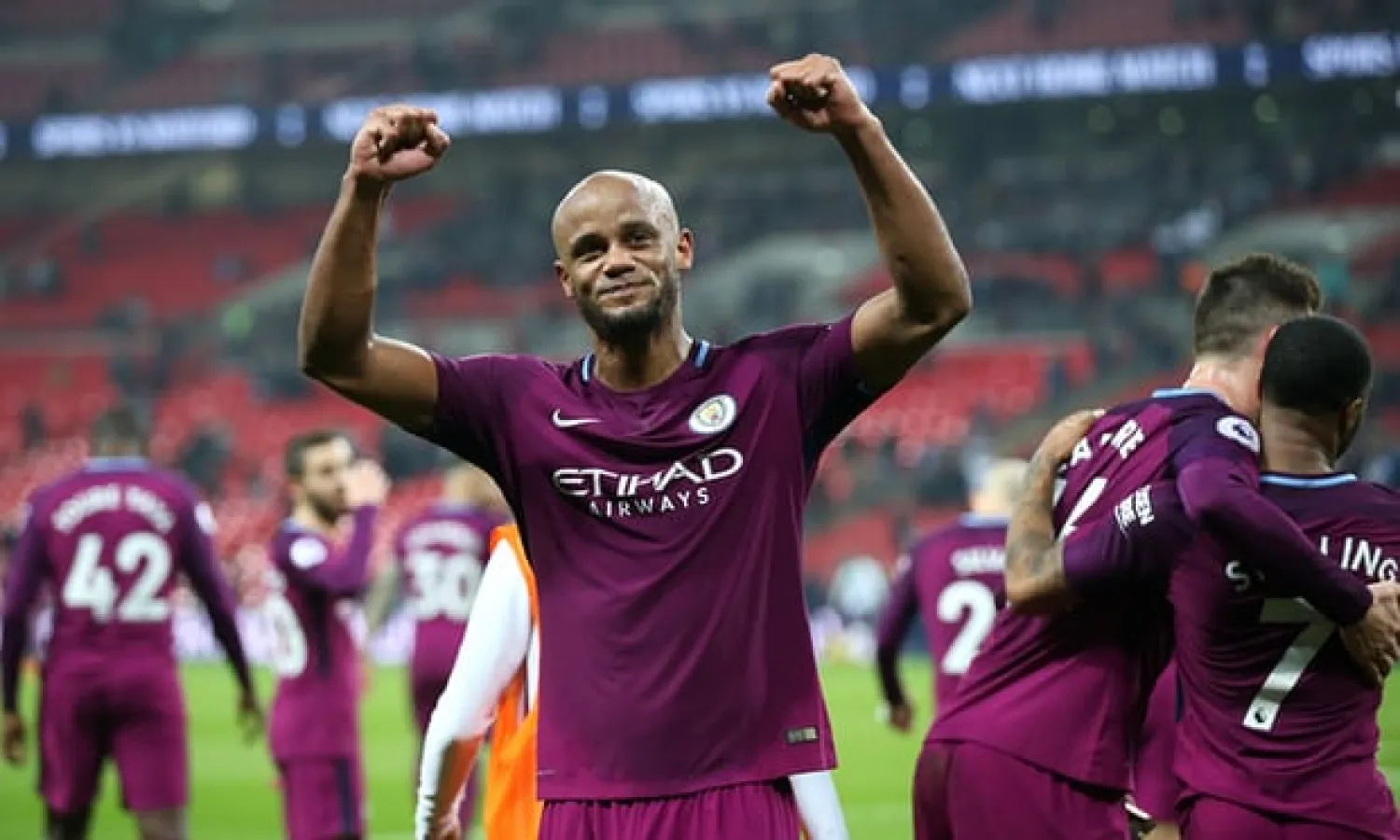Work on plan B
Pep Guardiola can bridle at the suggestion he does not adjust the gameplan when required and for the 3-0 Champions League quarter-final first-leg defeat by Liverpool he did do so. The problem was that dropping Raheem Sterling for Ilkay Gündogan was such a rare move – removing a forward for an extra midfielder – it disrupted Manchester City’s rhythm. He has admitted it may have caused his players to wonder if their ultra-positive coach was “wary” of Liverpool and affected how they performed. By 31 minutes the tactic had failed and after 57 on came Sterling for Gündogan. Yet if Guardiola did more of this kind of adjustment the team would view it as less an experiment and more the norm and he would surely become as slick with plan B as with plan A.
Keep Sergio Agüero
Despite Agüero’s 30 goals in 39 appearances – 21 of which were scored in the Premier League – Guardiola remains lukewarm regarding the Argentinian. The manager believes City are better with Gabriel Jesus as the spearhead because of the Brazilian’s swifter link play that allows the side more fluidity. Although Guardiola is open to Agüero leaving this summer, it would be detrimental to let him go. Could Jesus step up and contribute the weight of goals required should Agüero depart? His figures suggest so but he is yet to enjoy a sustained injury-free period since joining in January 2017. Jesus has nine league goals in 14 starts (13 in all competitions), and last year there were seven in eight. This is an impressive ratio that will have to be continued.
Bolster central midfield
Guardiola has Fernandinho, Gündogan, David Silva and Kevin De Bruyne as frontline midfielders. There is also Fabian Delph, who is not trusted in the position, plus Oleksandr Zinchenko, who is preferred at left-back. Yet the manager will bolster this area in the close season for two reasons. First, Silva is 32 and Fernandinho turns 33 next month so each will have their game time managed next season. Second, Guardiola’s is a fierce football ethos based on midfielders being the prime personnel on which his teams are founded. In saying once that Fernandinho can play all 10 outfield positions Guardiola made the manifesto clear. Borussia Dortmund’s Julian Weigl, 22, is among those the manager will consider in the transfer window.
Replace Vincent Kompany
The perennial question of who will replace Vincent Kompany remains despite the captain’s late-season run of fitness that has taken his league appearances to 15 (19 in all competitions). Guardiola hopes Aymeric Laporte’s January recruitment can help provide an answer, as the Frenchman competes with Kompany, Nicolás Otamendi and John Stones for a place. Yet Kompany’s injury proneness means Guardiola has only three central defenders he can rely on. Expect Kyle Walker and Benjamin Mendy to be shifted across from full-back on occasion but West Brom’s Jonny Evans, a career centre-back, may again be of interest.
Continue to be brave
This may be counterintuitive after City were dumped out of the Champions League 5-1 by Liverpool but Guardiola must not lose courage in his quest for ever more perfect football. Given how invigorating City are to watch, next season’s fascination will be whether the Pep way can conquer Europe, while he tries to retain the Premier League crown. To do so he has to solve the issue that plagued him at Bayern Munich, between 2013-16, and in two European campaigns at City: how to fill the gap in the XI where he fielded Lionel Messi for his two-time European Cup-winners Barcelona. The Argentinian was Guardiola’s genie in a bottle, his go-to when the team needed to pull away from sides who came at his Barça, just as Jürgen Klopp’s team did at City. Guardiola has to find another way, and if he maintains the desire to always dazzle, the result could be a Messi-less City who are even better than his gilded Barça.
The Guardian Sport









